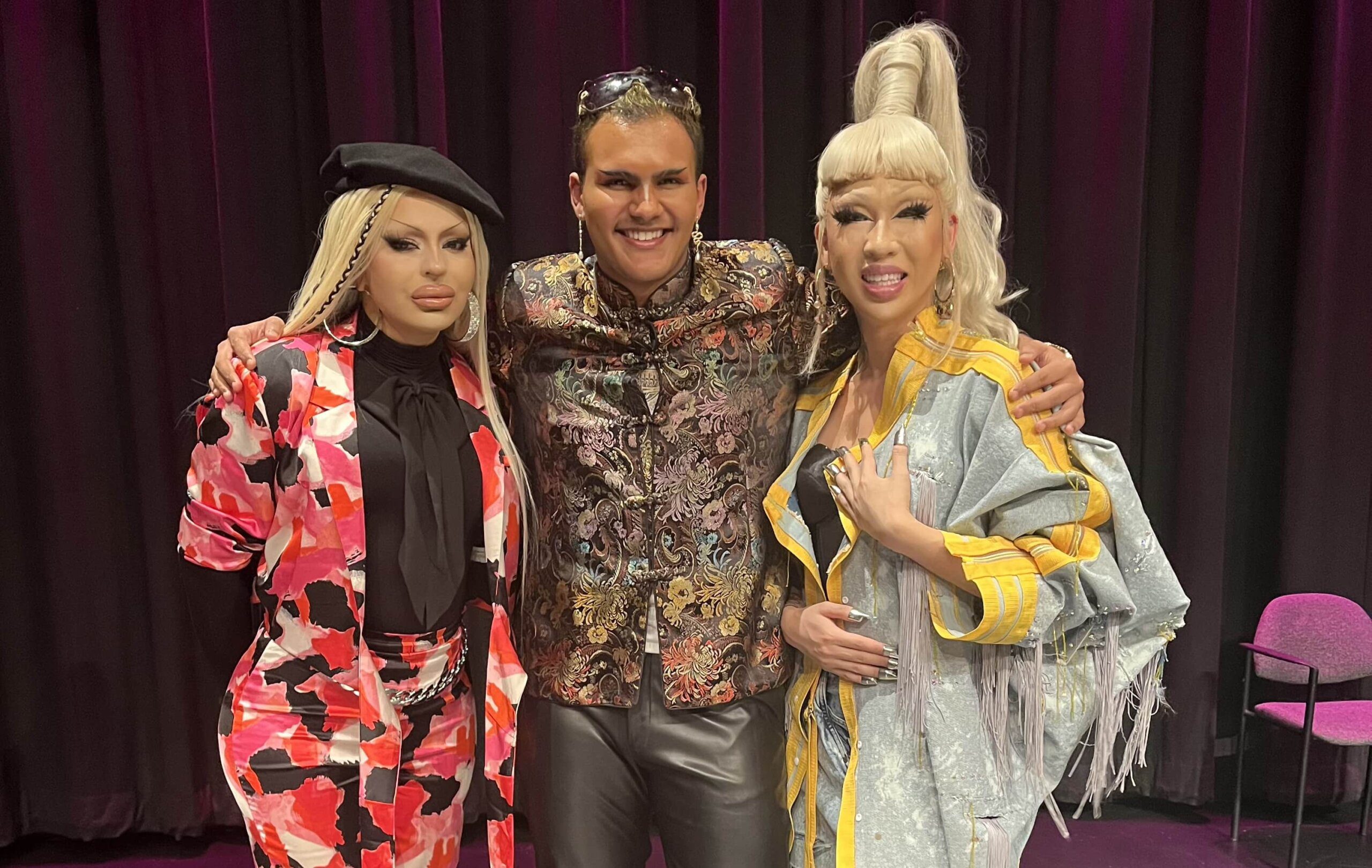Last month, 16-year-old queer activist Ra’Jah Mohamed was shocked by his school board’s decision to cancel a drag performance.
Mohamed, a Grade 11 student at Lo-Ellen Park Secondary School in Sudbury, Ontario, under the Rainbow District School Board, was helping to organize the event. The show, part of the Courage Across Canada Tour, features former Canada’s Drag Race contestants, including Kimora Amour and Season 2 winner Icesis Couture. The event’s website bills it as “a celebration of the resiliency of queer, trans and non-binary folks over the last few years.” The tour, put on by International Day of Pink (an anti-bullying initiative), received part of its funding from the Government of Canada.
According to Mohamed, the event was initially approved in October before the board walked back on that decision in early January. Mohamed says the board cancelled the show for various reasons “that are pretty unfounded.”
Mohamed says the school board claimed the event lacked educational value, which he feels is “ridiculous” considering the Government of Canada funding. However, regardless of educational merits, Mohamed says the school also deemed the event “hypersexual” and inappropriate for a high school environment. “Drag in itself is not inappropriate,” he says.
Mohamed says that some performers can target their drag at an older audience. “But when it comes to this drag—when it comes to the majority of drag—it is very easy to make it age appropriate. Appropriate rules, appropriate clothing and speaking on issues that are appropriate for the age group. And out of everything that has been done by this event, to say that drag itself is inappropriate is homophobic,” he says.
In response to the cancellation, Mohamed launched a petition on Change.org titled “WE WANT COURAGE,” demanding accountability from the school board. “This is an outrageous development with even more outrageous reasoning,” he writes in the campaign description. “What the Rainbow District School Board calls ‘too political,’ we know is education.” To date, the petition is approaching 3,000 signatures.
Mohamed is also the vice-chair of his school board’s student senate. He says he has used this position to stress to teachers and administrators how “fundamental” he believes this event is to queer youth.
In response to the cancellation, Mohamed has led student protests outside the school. He has also taken a creative stand by attending school in drag.
“The role of a school is absolutely to listen to the students and understand their concerns and their wishes for the betterment of their community within the school,” says Mohamed.
Local politicians have also spoken out in support of his cause, says Mohamed, including MP Viviane Lapointe and MPP Jamie West. BLM Sudbury and Sudbury Pride have also shown support.
According to Mohamed, support within his school among peers and some teachers has been “really good.” “Even if they are afraid to speak out and even if they are afraid to protest, they still show their support in other ways,” he says.
Mohamed says that some may be afraid to show support publicly due to the Rainbow District School Board being a large employer in northern Ontario. “They are silencing people. They are speaking negatively of people who have been directly involved who have done nothing wrong. There are people that I’m unfortunately unable to even advocate for just because they have been silenced under confidentiality agreements with the board.”
Another reason Mohamed says it can be challenging to speak out is the reaction from some sectors of the public. “I was recently featured on the Sudbury Star’s Facebook, and upon reading the comments, it was abhorrent to see people being so negative, especially when it comes to teenagers.”
Fortunately, while the debate over the board’s handling of the event continues, the event itself was held elsewhere. After Subury’s Collège Boréal offered to hold the event, it took place there on Feb. 10.
Speaking out about the cancellation is not Mohamed’s first foray into activism. “I work with my community because I feel that I advocate for many different people,” he says. “I’m a public speaker, so I speak about different issues of intersectionality. I feel that anyone who is different should have their voice heard, and we should respect their voices absolutely.”
Mohamed is part of Lo-Ellen’s Gay-Straight Alliance and helps lead events with that group to raise awareness for causes such as food insecurity, including a food drive he says raised over $11,000. Previously, Mohamed has worked with the HOPE campaign organized by Future North (an initiative dedicated to increasing opportunity for youth in Sudbury and Manitoulin), which he says involved speaking to MPs about youth-related issues. “We did presentations to show that youth in Sudbury are still thriving even after the pandemic,” Mohamed explains. Mohamed is also part of the Diversity Advisory Committee for the Greater Sudbury Police, where he advocates for racialized and queer communities.
Moving forward, Mohamed wants to encourage other young people who advocate for equality and inclusion in their communities. “My message for them is just to do what you need to do. Do not be afraid, speak on what you need to speak about, and do not let people silence you,” he says.


 Why you can trust Xtra
Why you can trust Xtra


